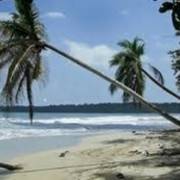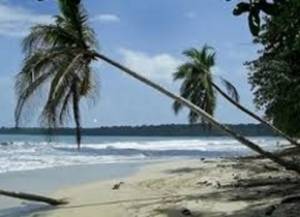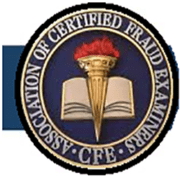New Import Law for Residents

The newly approved Law 9996, aimed at attracting investors, rentiers, and pensioners, has now taken effect. The new import law for residents grants added benefits to new residency applicants in three categories: retirees, renters, and investors. These benefits are applicable to individuals who apply for residency within the first five years of the law’s validity (2023) and will remain in effect for ten years after approval. I receive many inquiries regarding the importation of personal belongings from the United States.
Here is a summary of the new import law
Our legal department at Cody L Gear and Associates in Escazu has reviewed and prepared this summary.
Household Goods:
Importing household goods, including new and used appliances, furniture, decorative items, and more, is now exempt from one-time taxes. Thus, it is important to understand that the law allows for reasonable quantities, and you cannot bring half of Walmart with you. (Ref: “Decree N° 43926 -MGP-H-TUR, the regulation of Law 9996, March 2023”)
Vehicle Imports:
Individuals can import up to two vehicles for personal or family use without paying import tax, customs fees, or value-added taxes. This exemption applies to land, maritime, and air transport. If someone steals or destroys your vehicle, you can import a replacement vehicle with the same exemptions. (Ref: “Decree N° 43926 -MGP-H-TUR, the regulation of Law 9996, March 2023”)
Income Tax:
The law waives the income tax related to obtaining migratory status, but it subjects income derived from investments within the national territory to income tax. (Note: Further details about the tax reduction of property acquired during the law’s validity are available. Also, equipment or materials for professional or scientific use are exempt from taxes.
Additionally, the law specifies that beneficiaries of immigration status as investors, residents, and retirees will not automatically become tax residents.
In the investor category, the law has reduced the required investment amount from $200,000 USD to $150,000 USD. Individuals can make investments by acquiring assets, shares, securities, or projects of national interest. Moreover, this category also includes consideration for venture capital and sustainable tourism infrastructure investments.
Residents applying for residency in Costa Rica can import a maximum of two vehicles for personal or family purposes, free from import tax, customs fees, and value-added taxes. If a vehicle is stolen or destroyed, a replacement vehicle can be imported with the same exemptions.
These exemptions remain valid for ten years, expiring in July 2031.
To apply for import duty exemptions on vehicles or household goods, the following steps must be taken:
Present your Costa Rica DIMEX card as proof of resident status (retiree, renter, or investor).
Deposit your vehicle at a customs warehouse.
Apply for exemption from the Treasury Department (Ministerio de Hacienda) through their website, EXONET.
You will also need to provide:
A digital signature.
You need certification of being up to date with Caja payments.
Also, a certificate of no outstanding taxes, corporation fees, or property taxes.
Finally, you will need certification of shares owned in the corporation responsible for importing the vehicle and/or goods.
A sworn and notarized statement from each qualified family member (spouse and/or adult single children under 25) confirming they will not request exoneration separately.
The bill of lading and a copy of the vehicle’s title.
The customs value of the vehicle.
Obtaining these certifications takes time and may incur several hundred dollars in lawyer fees.
Once all documents are uploaded to the EXONET website, the Treasury Department has sixty days to approve or deny the application. Approval is based on the economic income declared during the residency application process, considering whether the requested exonerations are within the means of the applicant’s monthly income.
For more assistance contact us at info@codylgearandassociates.com



 Just what are you looking for in Costa Rica? Trying to
Just what are you looking for in Costa Rica? Trying to 




 Real Estate fraud plagues Costa Rica. Recently, that police arrested four persons in connection with a $50 million dollar Real Estate fraud. According to numerous news sources the four arrested are lawyers and Notaries. In Costa Rica all notaries have to be licensed attorneys. The documents that pass through National Registry must be notarized. Since most land purchases are purchased in a Costa Rica Corporation the transaction must be notarized. Generally, attorneys are given power of attorneys over the transactions. In contrast to the United States, a notary cannot notarize a conveyance to which he is a party. Here that is not the case.
Real Estate fraud plagues Costa Rica. Recently, that police arrested four persons in connection with a $50 million dollar Real Estate fraud. According to numerous news sources the four arrested are lawyers and Notaries. In Costa Rica all notaries have to be licensed attorneys. The documents that pass through National Registry must be notarized. Since most land purchases are purchased in a Costa Rica Corporation the transaction must be notarized. Generally, attorneys are given power of attorneys over the transactions. In contrast to the United States, a notary cannot notarize a conveyance to which he is a party. Here that is not the case.




 Costa Rica Squatters: Just when it seemed that investing in property in Costa Rica was safe, today saw the expropriation of property occupied by Costa Rica squatters. After a lengthy legal 2-year battle, a group of
Costa Rica Squatters: Just when it seemed that investing in property in Costa Rica was safe, today saw the expropriation of property occupied by Costa Rica squatters. After a lengthy legal 2-year battle, a group of 